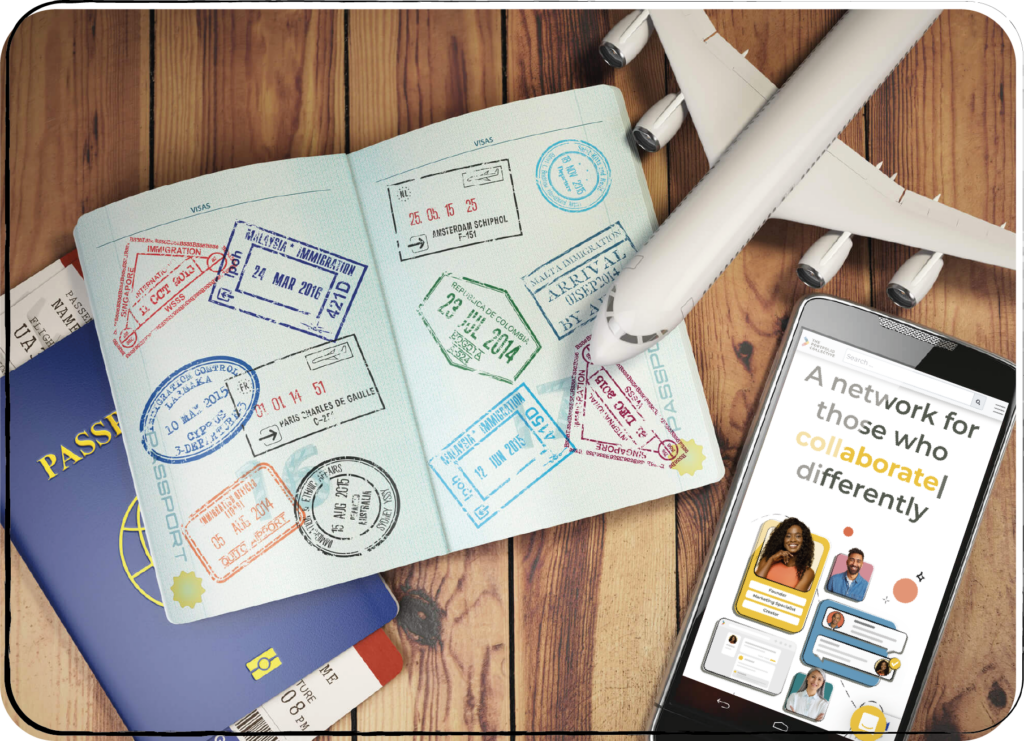Taxd
With remote work fast becoming the norm, many professionals are looking to move abroad or operate from more exotic locations – and why not? It’s never been easier (or more achievable) to be a digital nomad – just ask the TPC community – and if you can travel and work at the same time, why wouldn’t you embrace that lingering desire to explore?
Of course, it’s not always as clear cut as picking up and plugging in. So before you take the plunge, it’s worth understanding the basic information surrounding tax residence and ensuring you plan your move dates in the most efficient manner.
Not sure where to start? Here’s everything you need to know about navigating taxes as a digital nomad.
Understanding residence
Let’s assume you’re a UK resident (if not, you can skip down a few sections). Your UK residence status determines whether you’ll pay tax in the UK on your foreign income.
Sounds simple right?
However, it’s easy to get caught out and taxed on income you initially thought would not be taxed by HMRC.
You’re considered a UK resident if:
- You spend 183 days or more in the UK during the tax year
- You have a home in the UK (either rented or owned) for over 90 days that you stay in for at least 30 separate days
If you worked abroad full time and spent 90 days or less in the UK (with no more than 30 of those days spent working), you’re automatically a non-resident.
How am I taxed as a UK resident?
Predominantly, you’ll be taxed on your worldwide income.
There’s an opportunity to exempt foreign income from UK tax if you are non-domiciled to the UK, which you can learn more about here.
But if you were born in the UK, a parent was born in the UK and you’ve been a national here throughout your life then the UK has the right to tax the money you earn around the world.

As a UK resident, foreign income such as interest, dividends, property income, salaries and overseas pensions can all be subject to UK tax. But don’t worry, there are tax treaties in place to help avoid double taxation if the income you’re receiving is also being taxed by the country it’s sourced from.
In most cases the tax treaty will determine which country has the taxing right to that income. Then, the country that doesn’t have the right will give you a credit for the taxes you have paid on that income overseas. If this tax is higher then it would bring the UK tax down to zero, but if it is less than the UK tax amount then you usually need to pay the difference.
How am I taxed as a non-UK resident?
If you’re a non-UK resident for tax purposes then you’ll only be taxed on income sourced from the UK.
This can include:
- UK rental income
- UK bank interest and dividends
- UK workdays
- UK pensions
If you’re a UK national or citizen of the European Economic Area (EEA) you’ll still receive the UK tax-free personal allowance. The remaining income would be subject to tax at the usual UK rates.
Top tip: If you’re thinking of moving abroad but aren’t sure about taxes, it’s worth checking for countries that have special regimes in place that allow foreigners to exempt their UK income from taxation in that country. Sometimes you can do this for up to six years!
Do I need a special visa to work abroad?
Often, yes. To acquire a work visa in a country you’ll typically need to have a firm, written job offer from a corporation with offices in that country. Although, in more and more countries, immigration offices are developing special classifications to accommodate foreign freelance workers.
The rules vary per country, but many now offer some sort of freelance visa that allows you to legally reside in that country without being employed by a local firm.

There’s also the option, if you’re self-employed or remote working, to spend a few days working whilst on a trip or visiting another country for a very short period of time. The rules, in this instance, are a bit more hazy as you’re not intending to live in that place, but rather just have a change of scenery.
If you only spend a couple days working abroad, you’re not likely to trigger any unexpected liabilities. But the longer you stay, the higher the risk becomes. So just make sure you’re aware of the rules before you start working.
What about travel visas?
A travel visa allows you to visit a country for a specified time for either personal or professional reasons. This can be ideal for freelancers who are planning short-term trips.
Note that most travel visas do not give you the legal right to work in the country.
Here are some special considerations that apply to digital nomads:
- Some countries may not allow you to work during your visit
- While travel visas are often granted for a very limited time, some countries allow for extended stays
- Some countries offer a ‘working holiday visa’, which is offered to young adults to allow them to visit the country while simultaneously working to fund the trip
Staying in a country less than three months
Most travel visas allow you to stay in a country for up to 90 days. If your stay won’t be any longer, then you’ll be considered a traveller and won’t need to make long-term visa plans. Because of this, you can usually do freelance work in a country without having to get approved for a freelance visa – but have a check on the country of travel’s immigration website.
Staying in a country for more than six months
Staying over six months, however, is typically the cut-off for requiring a freelancing visa, registering your business and being obligated to pay income taxes to that country as you will be considered a resident.
So you say there’s a visa just for freelancers?
Yes – these visas typically offer a limited window (1-2 years) for freelancing within that country. These may also be called ‘self-employed visas’ or ‘entrepreneur visas’ and they are a relatively new development in a lot of countries.
As such, you may need to provide proof of minimum income or cash in the bank to show you can sustain living costs for a period of time.
Some countries that are already offering freelance visas include:
- Croatia
- Czech Republic
- Germany
- Greece
- Norway
- Portugal
- UAE
- Australia
- Indonesia (Bali)
- Malaysia
- Thailand
More countries may introduce these visas to incentivise digital nomads as freelancing continues to grow in popularity. As a rule of thumb, you’ll most likely need to provide the following on your application for a nomadic visa:
- A letter that establishes your status as a digital nomad – this could be details of your foreign business/clients
- A copy of your passport / travel documents
- A background check from your home country
- Health insurance
- Proof of funds to support yourself
- The address you will be staying at in your chosen travel destination
Can I be resident in two places?
People often believe that they can only be deemed a tax resident in one country at a time, but it’s common to see individuals become ‘dual-residents’. That is, they meet the residence criteria for more than one country at the same time in the same tax year (or tax years that overlap).
For example, someone may spend six months a year in the UK and six months in Spain. This would mean they’d be classed a tax resident in both of those countries.

In this example, we would refer to the double tax agreement between the UK and Spain to determine where that individual is a treaty resident. That country would then get the overall taxing right, but it can become more complicated once you look into individual income types and their sources.
Above everything else, plan ahead
Know the rules – it’s plain and simple. If you’re mainly based in the UK, you’ll have to pay UK tax. If you want to move abroad more permanently, it’s a different story. Don’t just assume you can work wherever without any tax implications, because that can land you in hot water.
Remember that the rules are different depending on where your main residency lies. For example, the UK doesn’t have the same tax year as every other country. Some follow a calendar year approach, which means you could find yourself in overlapping tax years.
If you aren’t sure about the taxes in your particular country of residence, don’t hesitate to ask the TPC community – chances are, someone will know the answer or be able to put you in touch with someone who does.
It also doesn’t hurt to speak to an advisor and plan ahead!
You can now file non resident tax returns directly with taxd or reach out to us if you want your nomad journey planned in the most tax efficient manner!
Think this sounds like the right path for you? Come along to our monthly Community Welcome Call for new members to find out what a portfolio career could look like and how The Portfolio Collective can help you take those first steps towards professional success – and don’t forget to connect with our community!




3 responses to “The digital nomad’s guide to managing taxes abroad”
Tagging some of our nomad’s in case this is a handy guide for you (and for encouraging others to take the plunge!) – @emily-m, @amychao, @shalaka, @niccitalbot, @georgehunter @umesh-d, @sigi-van-het-schip, @frida-persson!
Having a read! Good guide here from Xolo – https://blog.xolo.io/list-of-all-countries-with-digital-nomad-visas
Thanks for adding this, Nika!